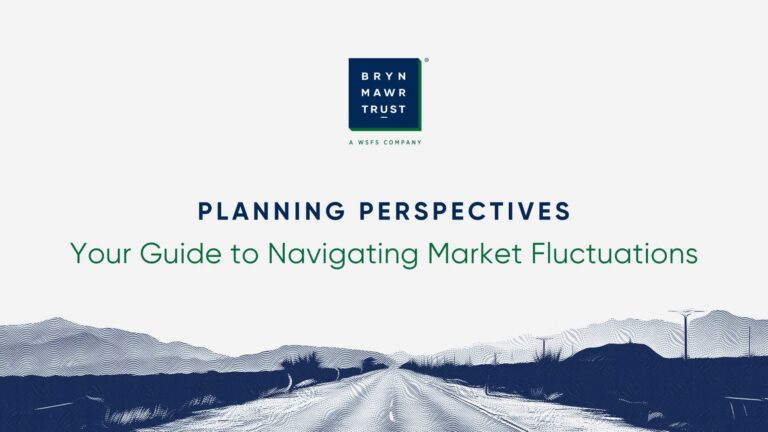WEBINAR REPLAY: Steady Your Financial Plan in an Uncertain Market
In this webinar, we discuss understanding tariffs, trade tensions, and how to stay calm amid uncertainty.

In this webinar, we discuss understanding tariffs, trade tensions, and how to stay calm amid uncertainty.

The largest wealth transfer in history is happening right now. Baby Boomers—who control an estimated $84 trillion in assets…

In this webinar, we discuss understanding tariffs, trade tensions, and how to stay calm amid uncertainty.

Planning Perspectives is your guide to navigating the complexities of wealth management with ease. This week, we discuss how to navigate market fluctuations.

Despite the short-term volatility in the market, it’s important to remain optimistic about the long-term outlook.

The announcement of blanket tariffs on all foreign goods coming to the U.S. resulted in a sharp market selloff yesterday. Indications for today show no reprieve, as China, the world’s second-largest economy, is imposing its tariffs on U.S. goods. While historically, similar sparks have ignited a global trade war, immense uncertainty remains. Further retaliatory announcements…

Planning Perspectives is your guide to navigating the complexities of wealth management with ease. This week we discuss how interest rate changes affect your finances.

Financial planning can have many definitions. It can relate to your business, your finances, or your family in general. This exercise provides a road map of where you have been financially, where you are, and where you want to go. I am often asked how frequently I should partake in this exercise, and my answer…

Interest rates play a pivotal role in the U.S. economy, influencing everything from consumer spending to business investments. These rates determined mainly by the Federal Reserve (“the Fed”), directly affect the cost of borrowing and the returns on savings. For individuals and businesses, understanding how interest rates rise and fall—and the ripple effects these changes…

Planning Perspectives is your guide to navigating the complexities of wealth management with ease. This week we discuss what Roger Federer can teach you about winning in the market.

Women entrepreneurs are transforming economies worldwide, driving innovation, and overcoming systemic barriers to success. In 2024, women-owned businesses accounted for 39% of all businesses in the U.S., employing 12.2 million workers and generating $2.7 trillion in revenue1. Despite these achievements, women entrepreneurs continue to face challenges in accessing capital, securing industry representation, and gaining visibility.

According to McKinsey, the great wealth transfer is upon us and American women stand to control approximately $30 trillion by 2030.1 This shift in wealth presents opportunities and challenges for female investors and financial decision-makers, and understanding our biases, emotions, and financial behavior about money will help us manage our wealth and teach the next generation the importance of financial responsibility.

Planning Perspectives is your guide to navigating the complexities of wealth management with ease. This week we discuss cyber-security tips to protect your finances.

Planning Perspectives is your guide to navigating the complexities of wealth management with ease. This week we discuss tips to align your financial and tax plans.

Planning Perspectives is your guide to navigating the complexities of wealth management with ease. This week we discuss how to protect your digital assets.

Planning Perspectives is your guide to navigating the complexities of wealth management with ease. This week we discuss three financial resolutions for 2025.

Planning Perspectives is your guide to navigating the complexities of wealth management with ease. This week we discuss how to navigate upcoming changes to the social security system.

Planning Perspectives is your guide to navigating the complexities of wealth management with ease. This week we discuss how to navigate 2025 tax policies.

Planning Perspectives is your guide to navigating the complexities of wealth management with ease. This week we discuss required minimum distributions.

Planning Perspectives is your guide to navigating the complexities of wealth management with ease. This week we discuss the investment moves to make before year-end.

For many of us, the end of the year is often a mad dash for charitable giving. Before you write that check this December, take time to reflect on how you will gift, the timing, and who will gift alongside you to make your donation most meaningful. There are many ways to give, including the…

Planning Perspectives is your guide to navigating the complexities of wealth management with ease.
This week we discuss end of year tax tips.

Join us for an insightful webinar where we’ll explore the evolving landscape of healthcare and unpack key aspects to consider in your overall financial plan.

This week we discuss how to maximize your HSA.

Since 2003, HSAs have grown in popularity for savings and qualified medical expenses. Contributions are deducted on a pre-tax basis directly from your paycheck, avoiding federal taxes on both the money invested and the growth of the investment.

As we approach the 2024 U.S. Presidential election, the markets have already shown signs of reacting to the evolving political landscape.

Election years can bring stock market volatility and increased investor anxiety.

It is often said that the stock market is forward-looking, meaning its growth will depend on how publicly traded companies perform in the future, not the past or present day. More specifically, market returns are driven more by economic trends than election outcomes.

This week we discuss easing election year financial jitters.

As the 2024 presidential election approaches, many of us grapple with heightened anxiety about the potential impact on our financial futures.

With President Joe Biden not seeking reelection and Vice President Kamala Harris assuming the nomination to face Former President Donald J. Trump in November, this election season will be one for the ages.

In today’s evolving business landscape, exceptional banking services are essential for success.

This week we discuss job opportunities and challenges amidst the AI revolution.

Balancing personal financial goals with the demands of your business can be challenging. Still, with the expertise of a financial advisor, business owners can achieve greater financial stability and peace of mind. Here are several essential ways financial advisors can assist business owners in managing their finances. Comprehensive Financial Planning Financial advisors begin by comprehensively…

Currency fluctuations significantly impact global earnings and asset positioning, despite most investors not directly trading foreign currencies. A strong U.S. dollar negatively affects multinational companies’ international revenue, while substantial currency price fluctuations can lead to considerable volatility in certain asset classes, particularly carry trades where investors borrow in low yielding currencies to invest in higher yielding currencies. It is within these dynamics that greater attention should be focused on currencies.

Planning Perspectives is your guide to navigating the complexities of wealth management with ease. This week we discuss unique financial risks that business owners face.

As America’s retirement crisis looms larger than ever, with nearly half of the population fearing financial instability in their golden years, innovative state plans and employer-driven solutions are stepping in to bridge the savings gap and ensure a secure future for all.

Planning Perspectives is your guide to navigating the complexities of wealth management with ease. This week we discuss the 4% withdrawal strategy in retirement.

Planning for retirement can be an extremely daunting task and varies by individual, but we’re here to help you understand how to better prepare for your “golden years.”

Watch our replay as we look at the economic and stock market expectations for the second half of the year, where both opportunities and risks await investors.

Planning Perspectives is your guide to navigating the complexities of wealth management with ease. This week we discuss maximizing retirement income and tax-optimized distributions.

The U.S. economy continues to grind, and macro-level data suggests that moderating growth ahead will not cause a near-term recession. When setting the current environment at a level compared to our expectations at the start of the year, investors witnessed more mid-cycle dynamics as risks to the downside lessened and valuations expanded. With the macro-economic environment seemingly in a constructive place, we’re reminded that complacency is not a viable investment strategy. In our mid-year update, we detail the opportunities and risks ahead.

Saving for retirement is something many of us are encouraged to participate in throughout our working lives. In a recent Bryn Mawr Trust survey about women and retirement, 826 women (age 40+) said that their top sources of wealth are careers, followed by saving and budgeting, with 40% selecting retirement as the leading life event that impacts their financial planning.1 The rules and guidelines for how much to save and where are readily available, but there needs to be more professional guidance for when we finally reach retirement and begin spending it.

Planning Perspectives is your guide to navigating the complexities of wealth management with ease. This week we discuss our mid-year outlooks & what it means for your investment goals.

Benjamin Franklin was famous for many things, including the quote about only two certainties in life: “death and taxes.” A strong retirement plan should optimize for tax savings as it reviews assets and income streams.

Defining and adhering to an asset allocation can be a powerful way to ensure your financial resources are aligned to achieve your financial and life objectives.

Planning Perspectives is your guide to navigating the complexities of wealth management with ease. This week we discuss the importance of frequently reviewing your estate plan.

Dealing with your estate plan is often not front of mind, but it is very necessary. Below are five reasons you should consider reviewing your estate plan now.
© 2026 WSFS Bank. Member FDIC. Wilmington Savings Fund Society, FSB d/b/a WSFS Bank. Private Banking is a division of WSFS Bank.
Wilmington Savings Fund Society, FSB d/b/a/ Bryn Mawr Trust. Bryn Mawr Trust is a division of WSFS Bank. The Bryn Mawr Trust Company of Delaware is a subsidiary of WSFS Financial Corporation. Products and services are provided through WSFS Financial Corporation’s subsidiaries and their affiliates. Trust and investment advisory services are offered through Bryn Mawr Trust. Bryn Mawr Trust is not a registered investment advisor. Investment advisory services are also offered through Bryn Mawr Trust Advisors, LLC (“BMTA”), an SEC registered investment advisor and a subsidiary of WSFS Financial Corporation. BMTA’s registration as an investment advisor does not imply a certain level of skill or training.
Bryn Mawr Trust does not provide legal, tax or accounting advice but those services may be provided by affiliates or subsidiaries of Bryn Mawr Trust.
It remains a client’s responsibility to advise Bryn Mawr Trust (BMT) and Bryn Mawr Trust Advisors (BMTA), in writing, if there are any changes in a client’s personal/financial situation or investment objectives for the purpose of BMT or BMTA reviewing, evaluating, and/or revising its previous recommendations and/or services, or if a client would like to impose, add, or modify any reasonable restrictions to BMT or BMTA services.
All opinions expressed by the Associate(s) on television, radio, internet, or any other medium are merely opinions. You should not treat any opinion expressed as an inducement to make a particular investment or follow a particular strategy. Opinions expressed are based upon information that the Associate(s) considered reliable at the time spoken, but there is no guarantee of completeness or accuracy, and it should not be relied upon as such. The opinions do not represent the opinions of WSFS Financial Corporation or its subsidiaries. The Associate(s) and the listed entities have no duty to update or correct any information that was provided. Past performance is not indicative of future results, and as such, neither the Associate(s) nor any of the above-listed entities guarantee any specific outcome, performance, or profit. Before acting on any information from the Associate(s), consider suitability for your personal financial situation and seek the advice of your own financial professional.
Any third-party trademarks, and products or services related thereto, mentioned are for discussion purposes only. Third-party trademarks mentioned are not commercially related to, or affiliated in any way with, Bryn Mawr Trust products or services. Third-party trademarks mentioned are also not endorsed by Bryn Mawr Trust in any way. Bryn Mawr Trust may have agreements in place with third-party trademark owners that would render this trademark disclaimer not relevant.
INVESTMENTS: NOT A DEPOSIT. NOT FDIC – INSURED. NOT INSURED BY ANY FEDERAL GOVERNMENT AGENCY. NOT GUARANTEED BY THE BANK. MAY GO DOWN IN VALUE.